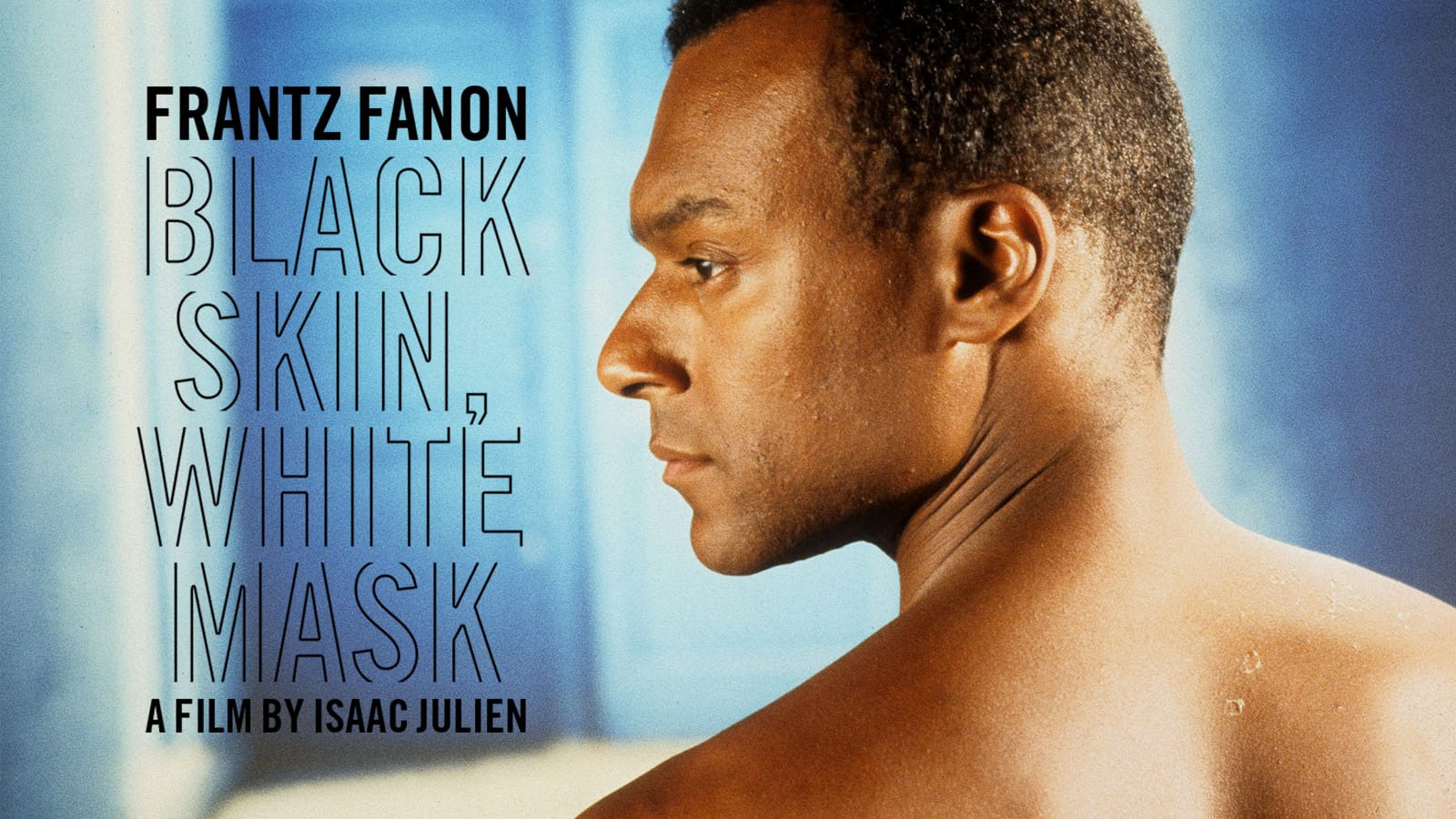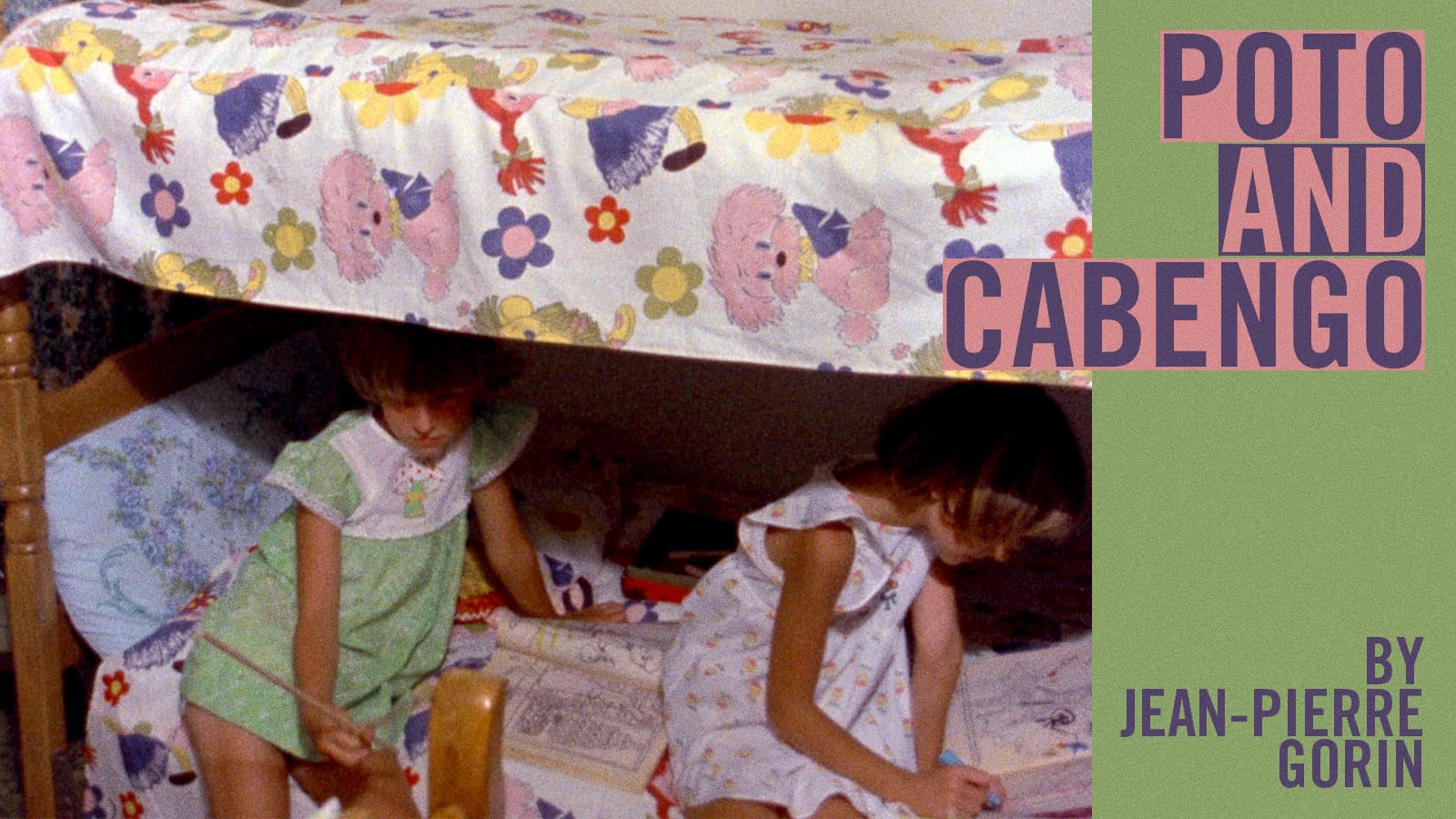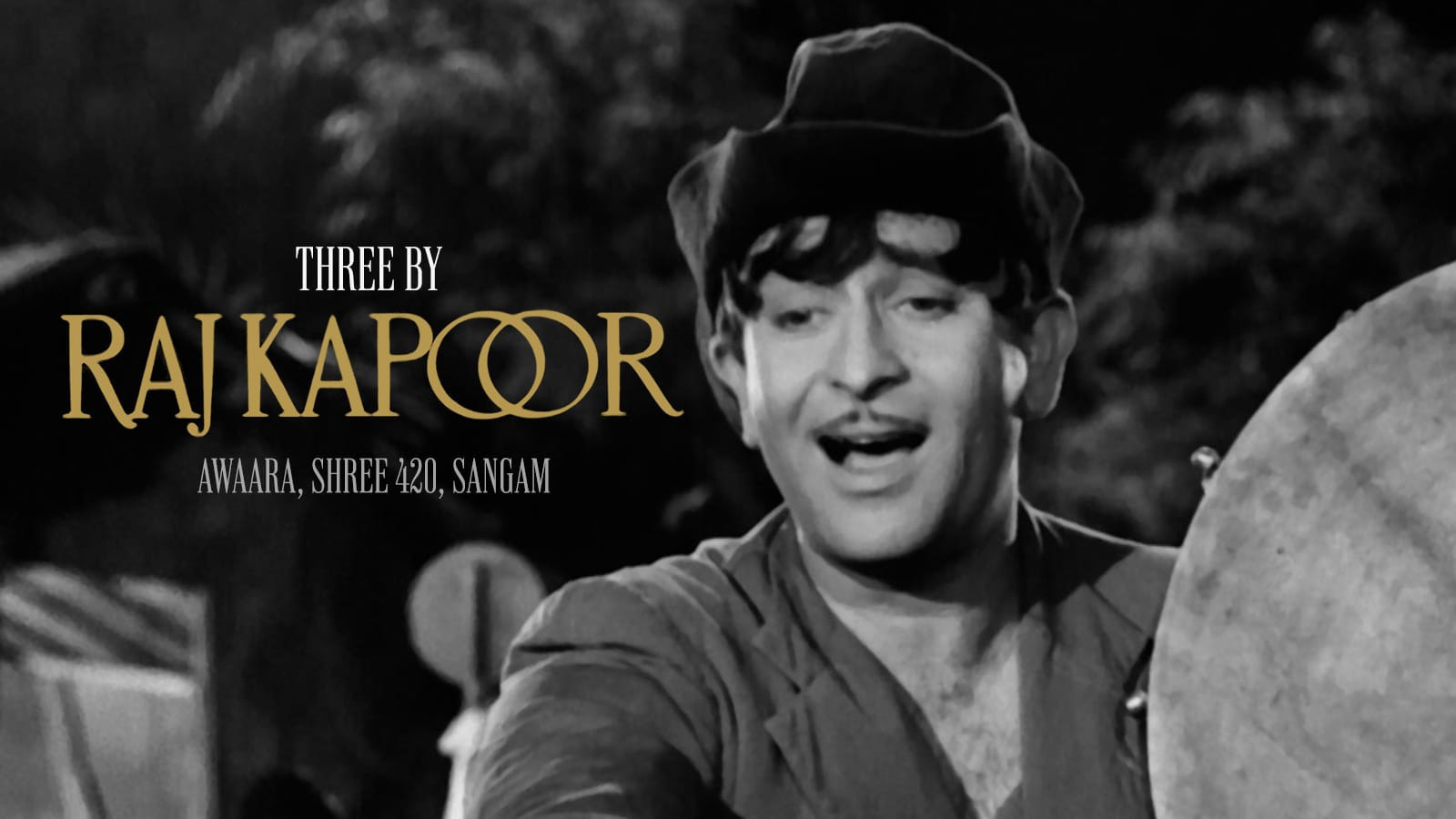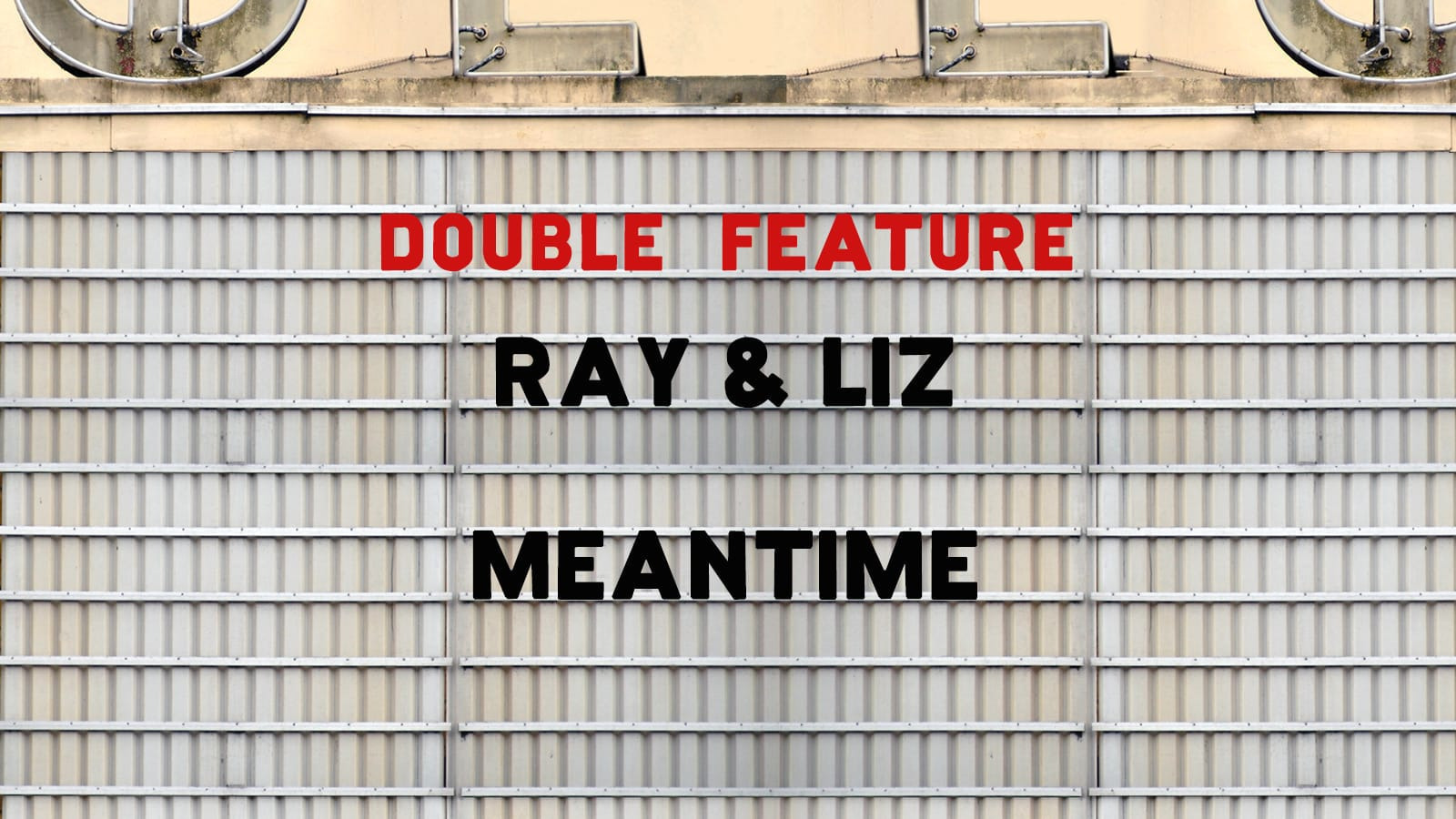The Criterion Channel’s January 2021 Lineup

The Criterion Channel’s January 2021 Lineup
Now check out the full calendar!
If you haven’t signed up yet, head to CriterionChannel.com and get a 7-day free trial.
* indicates programming available February 1
** indicates programming available only in the U.S.
Friday, January 1

Double Feature: Madcap Mirth with Katharine and Cary
Holiday and Bringing Up Baby**
Katharine Hepburn and Cary Grant make screwball sparks in two all-time classic comedies that fizz like fine champagne. First, Grant is the free-spirited charmer who brings some much-needed joie de vivre into the life of Hepburn’s black-sheep heiress in the New Year’s Eve–set Holiday, directed with a perfect balance of brio and poignancy by George Cukor. Then, it’s Hepburn who’s the mischief-maker opposite Grant’s stuffy paleontologist in Howard Hawks’s Bringing Up Baby, a giddy high-wire act of comic invention involving a missing dinosaur bone, a leopard named Baby, and some of the fastest and funniest dialogue ever unleashed on-screen.
SATURDAY, JANUARY 2
Saturday Matinee: The Incredible Shrinking Man
Ingenious special effects and a surprisingly sophisticated philosophical underpinning elevate the great existential science fiction drama of the 1950s.
SUNDAY, JANUARY 3

The Ghost of Peter Sellers
Streaming premiere
In 1973, comic genius Peter Sellers and his former The Goon Show collaborator Spike Milligan traveled to the coast of Cyprus to star in Ghost in the Noonday Sun, a seventeenth-century-set pirate spoof helmed by up-and-coming director Peter Medak. From the moment shooting started, it was a disaster of epic proportions, with the erratic Sellers seemingly determined to sabotage the film with his outrageous antics. Featuring a wealth of footage from the troubled production, The Ghost of Peter Sellers follows Medak as he returns to Cyprus forty-two years later to revisit the bizarre, hysterical, and heartbreaking experience of directing one of the greatest boondoggles in cinematic history, the making of which proved to be far wilder than anything captured on-screen.

Starring Peter Sellers
Comic chameleon Peter Sellers famously claimed to have no personality of his own. Instead, he saw himself as the medium through which his characters, which include some of the most memorable in all of twentieth-century cinema, were brought to life. Having pioneered a distinctly British brand of absurdist humor on the influential radio program The Goon Show, Sellers brought his peerless gifts for mimicry and physical transformation to the screen with standout turns in classics like The Ladykillers and I’m All Right Jack. It was Stanley Kubrick, however, who fully unleashed the actor’s potential, giving him virtuoso showcases in the provocative Nabokov adaptation Lolita and the subversive Cold War spoof Dr. Strangelove, the latter of which made the most of Sellers’s remarkable talent for inhabiting multiple, meticulously realized characters within the same movie. Sellers set the template for a new kind of comic star—one who was as celebrated for his quick wit and improvisatory genius as he was for his actorly range and technical sophistication.
Features:The Ladykillers (1955), I’m All Right Jack (1959), The Mouse That Roared (1959), Never Let Go (1960), Mr. Topaze (1961), Lolita (1962), Only Two Can Play (1962), Dr. Strangelove, or: How I Learned to Stop Worrying and Love the Bomb (1964), The Optimists (1973)
Shorts:Let’s Go Crazy (1951)

The Ruling Class (Peter Medak, 1972)
Criterion Collection Edition #132
MONDAY, JANUARY 4

Frantz Fanon: Black Skin, White Mask
Frantz Fanon: Black Skin, White Mask explores the world of the preeminent theorist of twentieth-century anticolonialism, a French West Indian psychiatrist and political philosopher whose writings gave expression to the psychological burdens of existing as a Black person in a white-dominated society. Artist and filmmaker Isaac Julien interweaves the story of Fanon’s brief but eventful life with his long and tortuous inner journey, restoring the trailblazing thinker to his rightful place at the center of contemporary discussions around postcolonial identity.
TUESDAY, JANUARY 5
Short + Feature: Bottoms Up!
The Pub and Withnail and I
Grab a pint and raise a glass to two intoxicating tales of alcoholic abandon set amidst the seamy side of British life.
WEDNESDAY, JANUARY 6

Monsoon Wedding (Mira Nair, 2001)
Criterion Collection Edition #489
THURSDAY, JANUARY 7

Ministry of Fear (Fritz Lang, 1944)
Criterion Collection Edition #649
FRIDAY, JANUARY 8
Double Feature: Frank’s Way
The Man with the Golden Arm and The Manchurian Candidate
Frank Sinatra explores the dark, complex edges of his persona in Otto Preminger’s taboo-shattering addiction drama and John Frankenheimer’s definitive Cold War thriller.
SATURDAY, JANUARY 9

Saturday Matinee: Kirikou and the Men and Women
The irrepressible infant hero Kirikou returns to the screen in a vibrant animated fable about courage, self belief, and tolerance.
SUNDAY, JANUARY 10

Starring Jane Fonda
Actor, activist, exercise guru, businesswoman, star of Hollywood hits and French art-house cinema alike—Jane Fonda has worn more hats than just about any performer of her generation and continues to be an outspoken fighter for social and environmental justice. Though she was born the daughter of Hollywood royalty, Fonda refused to rest on her famous name, training under Lee Strasberg at the Actors Studio and parlaying her early successes in hits like the rollicking western comedy Cat Ballou and the sci-fi cult extravaganza Barbarella into increasingly complex, challenging roles in acclaimed films such as the edgy neonoir Klute (for which she won her first best actress Oscar) and the prescient disaster thriller The China Syndrome. The fact that Fonda, at the height of her stardom, was one of the most visible faces of the civil rights and antiwar movements—and even decamped to France to star in Tout va bien, a radical anticapitalist screed by Jean-Luc Godard and Jean-Pierre Gorin—puts Fonda virtually in a class by herself for her rare combination of superstar talent and fearless political conviction.
Featuring: Walk on the Wild Side (1962), La ronde (1964)*, Cat Ballou (1965), The Chase (1966), Barefoot in the Park (1967), Barbarella (1968), Spirits of the Dead (1968), Klute (1971), Tout va bien (1972), Letter to Jane (1972), A Doll’s House (1973), Fun with Dick and Jane (1977), California Suite (1978), The China Syndrome (1979), The Morning After (1986)
MONDAY, JANUARY 11

Poto and Cabengo
Grace and Virginia are young San Diego twins who speak unlike anyone else. With little exposure to the outside world, the two girls have created a private form of communication that’s an amalgam of the distinctive English dialects they hear at home. Jean-Pierre Gorin’s polyphonic nonfiction investigation of this phenomenon looks at the family from a variety of angles, with the director taking on the role of a sort of sociological detective. It’s a delightful and absorbing study of words and faces, mass media and personal isolation, and America’s odd margins.
TUESDAY, JANUARY 12
Short + Feature: The Jimi Hendrix Experience
Jimi Could Have Fallen from the Sky and Jimi Plays Monterey
The life, music, and legend of Jimi Hendrix lives on in these electrifying tributes to his once-in-a-generation genius.
WEDNESDAY, JANUARY 13

Always Shine
Director Sophia Takal offers a tense and disquieting exploration of female friendship, rivalry, and Hollywood sexism in this provocative psychological thriller. Two friends (Mackenzie Davis and Caitlin FitzGerald), actors who have experienced vastly different levels of success, leave Los Angeles for Big Sur on a weekend getaway to reconnect. Once alone, however, the two women’s suppressed jealousies and deep-seated resentments bubble to the surface, causing them to lose grasp not just of the true nature of their relationship, but also of their own identities.
THURSDAY, JANUARY 14

Three by Raj Kapoor
One of the greatest showmen the cinema has ever seen, actor, producer, and director Raj Kapoor became a Bollywood icon thanks to his ability to blend comedy, pathos, and musical spectacle into rousing, deliriously entertaining underdog tales that spoke to the hopes and dreams of a newly independent India. This selection of classics from Kapoor’s golden period—including his blockbuster international sensation Awaara—gave Indian filmgoers a lovably Chaplinesque everyman hero of their own, one whose appeal remains as fresh and captivating as ever.
Featuring: Awaara (1951), Shree 420 (1955), Sangam (1964)
FRIDAY, JANUARY 15
Double Feature: Poe Goes Pop
The Masque of the Red Death and Spirits of the Dead
The macabre world of Edgar Allan Poe gets a stylish sixties update courtesy of Roger Corman, Federico Fellini, Louis Malle, and Roger Vadim.
SATURDAY, JANUARY 16
Saturday Matinee: The Cameraman
Buster Keaton is at the peak of his slapstick powers in The Cameraman—the first film that the silent-screen legend made after signing with MGM, and his last great masterpiece.
SUNDAY, JANUARY 17

Japanese Noir
Featuring a new introduction by Imogen Sara Smith
Just as postwar disillusionment infiltrated American pop culture and found its way to Hollywood in the form of film noir, so it did in Japan, where a wave of edgy, existential crime dramas spread like a shadow across the Land of the Rising Sun. With Stray Dog, Akira Kurosawa applied the chiaroscuro visual style and hard-boiled sensibility of American noir to a corrosive portrait of Japanese society—anticipating a profusion of fatalistic thrillers and policiers that would prove wildly popular throughout the 1950s and ’60s. The so-called “mukokuseki akushun” (“borderless action”) film was a particular specialty of Nikkatsu, the boundary-pushing studio where renegade directors like Seijun Suzuki (Youth of the Beast), Shohei Imamura (Pigs and Battleships), Toshio Masuda (Rusty Knife), and Takashi Nomura (A Colt Is My Passport) frequently jazzed up the pulp formula with elements of the western, comedy, gangster, and teen-rebel genres. Featuring modernist-cool masterpieces like Pale Flower and Branded to Kill as well as ripe-for-discovery gems like Zero Focus and Intimidation, these cruel stories of guilt and desperation are a window into the dark heart of postwar Japan.
Featuring: Stray Dog (1949), Black River (1956), I Am Waiting (1957), Rusty Knife (1958), Stakeout (1958), The Bad Sleep Well (1960), Intimidation (1960), Take Aim at the Police Van (1960), Zero Focus (1961), Pigs and Battleships (1962), High and Low (1963), Youth of the Beast (1963), Cruel Gun Story (1964), Pale Flower (1964), Tokyo Drifter (1966), Branded to Kill (1967), A Colt Is My Passport (1967)
MONDAY, JANUARY 18

Documentaries by Julien Temple
British cinema’s preeminent chronicler of offbeat subcultures and musical undergrounds, Julien Temple began his career documenting the 1970s punk scene and has remained committed to telling under-the-radar stories ever since. These vivid documentaries—one a rollicking portrait of the greatest local band you’ve never heard of; the other a vibrant history of Havana from the nineteenth century to the present day—display the stylistic verve and passion for music that have become Temple’s trademarks.
Featuring: Oil City Confidential (2009), Habaneros (2017)
TUESDAY, JANUARY 19

Short + Feature: Dangerous Encounters
Zoo and Code Unknown
Chance meetings between strangers spiral out of control in two chilling visions of racial violence and communication breakdown.
WEDNESDAY, JANUARY 20

Directed by Zeinabu irene Davis
Emerging from the explosion of Black cinematic creativity known as the LA Rebellion, Zeinabu irene Davis combines narrative storytelling and a range of poetic experimental techniques to give voice to African American women’s experiences of love, joy, struggle, and self-realization. Her sublime feature Compensation—one of the most unjustly neglected works of 1990s American independent cinema—incorporates sign language and silent-film techniques as it traces two love stories involving Black deaf characters across generations. It is presented alongside innovative works like Cycles and A Powerful Thang, in which Davis employs animation and Afro-Haitian dance to lyrically portray intimate moments in the lives of Black women.
Features: A Powerful Thang (1991), Compensation (1999)
Shorts: Crocodile Conspiracy (1986), Cycles (1989), Mother of the River (1995)
THURSDAY, JANUARY 21

Three by Pablo Trapero
Featuring a new introduction by the filmmaker
One of the driving forces of contemporary Argentine cinema, director Pablo Trapero delves into his country’s gritty underbelly with heart-racing immediacy. Plunging fearlessly into a women’s prison (Lion’s Den), the corrupt mean streets of Buenos Aires (Carancho), and Argentina’s shantytown slums (White Elephant), Trapero’s films crackle with an electrifying realism and unrelenting intensity that have earned them comparisons to the work of Martin Scorsese. Featuring powerful performances from the director’s regular collaborator Martina Gusmán and Argentine superstar Ricardo Darín, these white-hot social dramas are searing portraits of life on the unforgiving margins.
Featuring: Lion’s Den (2008)**, Carancho (2010)**, White Elephant (2012)**
FRIDAY, JANUARY 22

Double Feature: The Dole-drums
Ray & Liz and Meantime
Two unsparing portraits of life on the bottom rung of Thatcher’s Britain find surprising humor and visual poetry amidst the bleakness.
SATURDAY, JANUARY 23

Saturday Matinee: Tom Thumb
Childhood dreams and fears come to imaginative life in a sumptuously mounted French fantasy featuring Catherine Deneuve.
SUNDAY, JANUARY 24

Directed by Bertrand Tavernier
The films of Bertrand Tavernier are suffused with his love for cinema. In addition to being one of France’s foremost auteurs, he is also a film critic and historian who draws from his deep knowledge of classic French and American cinema to create his own uniquely absorbing, finely wrought works. Though his films span a wide variety of genres—from the politically charged crime thriller The Clockmaker of St. Paul to the sci-fi cult classic Death Watch to the darkly comic neonoir Coup de torchon to the bittersweet family portrait Daddy Nostalgia—each displays the exceptional craftsmanship, rigorous intelligence, and profound humanist and moral themes that have made him one the leading lights of Gallic cinema for over four decades.
Featuring: The Clockmaker of St. Paul (1974), The Judge and the Assassin (1976), Death Watch (1980), A Week’s Vacation (1980), Coup de torchon (1981), A Sunday in the Country (1984), Life and Nothing But (1989)**, Daddy Nostalgia (1990), Fresh Bait (1995)*, Captain Conan (1996)
MONDAY, JANUARY 25

Homegoings
Featuring two shorts and a new introduction by director Christine Turner
Filmed at Owens Funeral Home in New York City’s historic Harlem neighborhood, this revelatory documentary by Christine Turner takes an up-close look at the rarely seen world of undertaking in the Black community, where funeral rites draw on a rich palette of tradition, history, and celebration. Combining cinema verité with intimate interviews and archival photographs, Homegoings paints a vivid portrait of the dearly departed, their grieving families, and a man who sends loved ones “home.” It is presented alongside two beautifully observed short documentaries by Turner spotlighting brilliant Black artists Betye Saar and Kevin Beasley, whose work interrogates and subverts the history of racial oppression in America.
Features: Homegoings (2013)
Shorts: Kevin Beasley’s Raw Materials (2019), Betye Saar: Taking Care of Business (2020)
TUESDAY, JANUARY 26
Short + Feature: On the Eve of Destruction
The Big Shave and Ice
Allegorical critiques of the Vietnam War from Martin Scorsese and guerrilla cinema revolutionary Robert Kramer stand as models of searing political filmmaking.

Riot in Cell Block 11 (Don Siegel, 1954)
Criterion Collection Edition #704
WEDNESDAY, JANUARY 27

Short Films by Jennifer Reeder
Featuring a new introduction by the filmmaker
David Lynch meets John Hughes in the surreally sinister teenage dreams of Jennifer Reeder. Evoking the inner worlds of adolescent girls and women at moments of crisis and transformation, she combines hallucinatory Day-Glo visuals, moody synthscapes, and deliberately kitschy touches—DIY props, talking stuffed animals, references to eighties pop culture—to create an alternate Americana that feels at once familiar and unsettlingly uncanny. Laced with Reeder’s feminist spirit, these spellbinding short films are at once eerie and empowering visions of female coming-of-age in all its wonder, terror, and mystery.
Featuring: Seven Songs About Thunder (2010), Tears Cannot Restore Her: Therefore, I Weep (2011), And I Will Rise If Only to Hold You Down (2012), A Million Miles Away (2014), Blood Below the Skin (2015), Crystal Lake (2016), LOLA, 15 (2017), Shuvit (2017), All Small Bodies (2017)
THURSDAY, JANUARY 28

30 Years of the Film Foundation: Documentary Shorts by Vittorio De Seta
Heralded by Martin Scorsese as “an anthropologist who speaks with the voice of a poet,” Italian director Vittorio De Seta produced a string of extraordinary short documentaries in the 1950s that distill their subjects to pure cinema. Shooting in vivid color in the rural villages of Sicily, Sardinia, and Calabria, De Seta captured the rhythms and rituals of everyday life among the fishermen, miners, shepherds, and farmers who continued to live and work according to the preindustrial traditions of their ancestors. Presented without voiceover so that the rhapsodic visuals speak for themselves, these miniature marvels stand as essential, ennobling records of a vanished world.
Featuring: The Age of Swordfish (1954), Islands of Fire (1954), Solfatara (1954), Easter in Sicily (1954), Sea Countrymen (1954), Golden Parable (1954), Fishing Boats (1958), Orgosolo’s Shepherds (1958), A Day in Barbagia (1959), The Forgotten (1959)
FRIDAY, JANUARY 29
Double Feature: Ragin’ Pagans
The Wicker Man and Kill List
A twenty-first-century tour de force of psychological terror pays homage to the grandaddy of folk horror in a brilliantly berserk double bill of British occult classics.
SATURDAY, JANUARY 30
Saturday Matinee: Supa Modo
A girl faces adversity by becoming the superhero of her dreams in this Kenyan ode to the courage and resilience of young people.
SUNDAY, JANUARY 31

Directed by John M. Stahl
Master of the 1930s Hollywood melodrama John M. Stahl may be best remembered today for the numerous remakes of his films that Douglas Sirk directed in the 1950s, but this original “women’s picture” specialist was a unique and fascinating artist in his own right. While Sirk’s soap operas are famous for their visual excess and slashing irony, Stahl’s films are models of extraordinary sincerity and restraint that, in their stylistic purity, more closely resemble the work of Danish ascetic Carl Theodor Dreyer than any American counterpart. Addressing taboo issues of extramarital relationships (Back Street) and interracial friendship (Imitation of Life) with supreme sensitivity, these selections from Stahl’s heyday at Universal Pictures are quietly subversive in their empathetic understanding of the social constraints and hypocrisies that shape women’s lives.
Featuring: Back Street (1932), Imitation of Life (1934), Magnificent Obsession (1935), When Tomorrow Comes (1939)
Plus: Now Playing in 30 Years of the Film Foundation
In November, we kicked off our thirtieth-anniversary celebration for film-preservation powerhouse The Film Foundation, founded by Martin Scorsese in 1990. This month, the lineup welcomes four restored jewels of the 1920s: a silent classic from Victor Sjöström and early talkie triumphs by Alfred Hitchcock, King Vidor, and William Wyler.
Featuring: He Who Gets Slapped (1924), Blackmail (1929), Hallelujah (1929), Hell’s Heroes (1929)

Plus: Explore Exclusive Commentaries
There are few better ways to get to know a film inside and out than watching it with audio commentary—a form originally pioneered by the Criterion Collection back in the days of laserdisc! You can find hundreds of them on the Channel, featuring the directors, actors, writers, and other collaborators behind your favorite movies, as well as film scholars and critics. Check out the new Commentaries section on the Channel, where we’ve selected a number of our favorites, including Michael Powell and Martin Scorsese on Black Narcissus; D. A. Pennebaker, Elaine Stritch, and Harold Prince on Original Cast Album: “Company”; Wim Wenders and Peter Falk on Wings of Desire; and David Mamet and Ricky Jay on House of Games.



